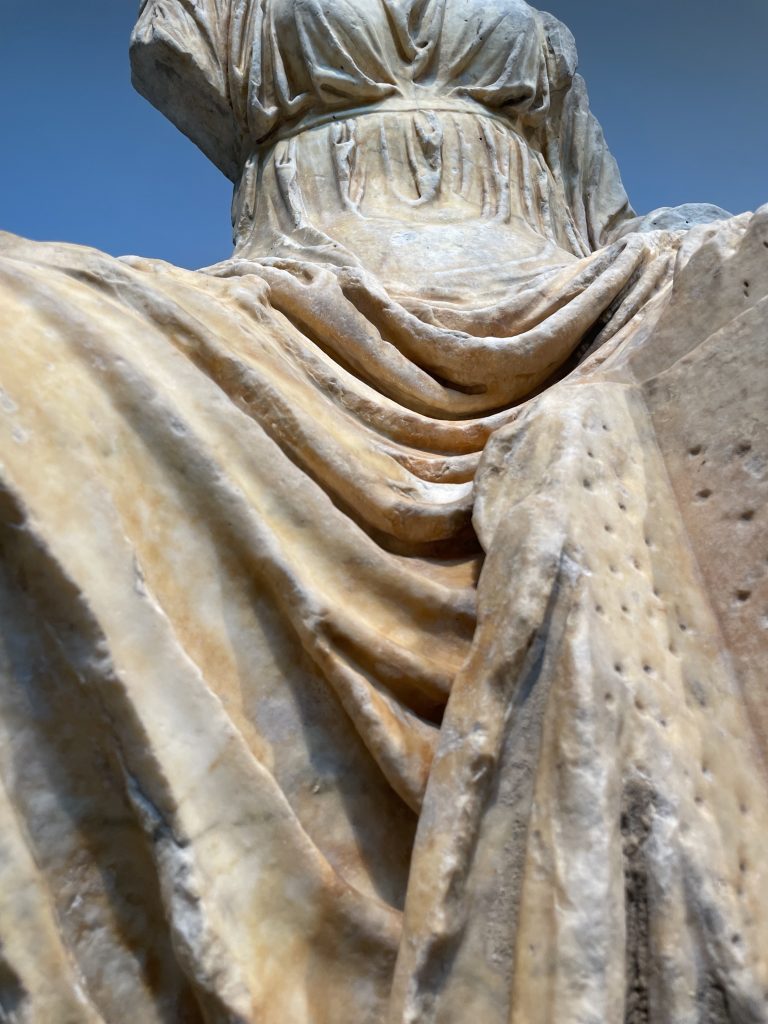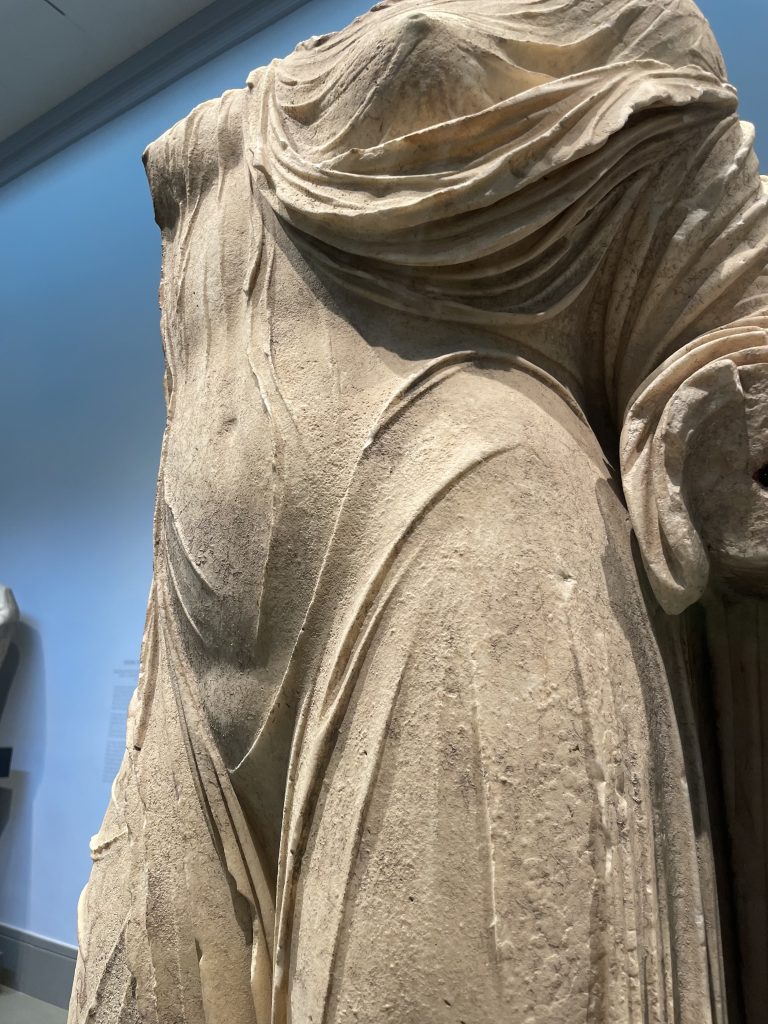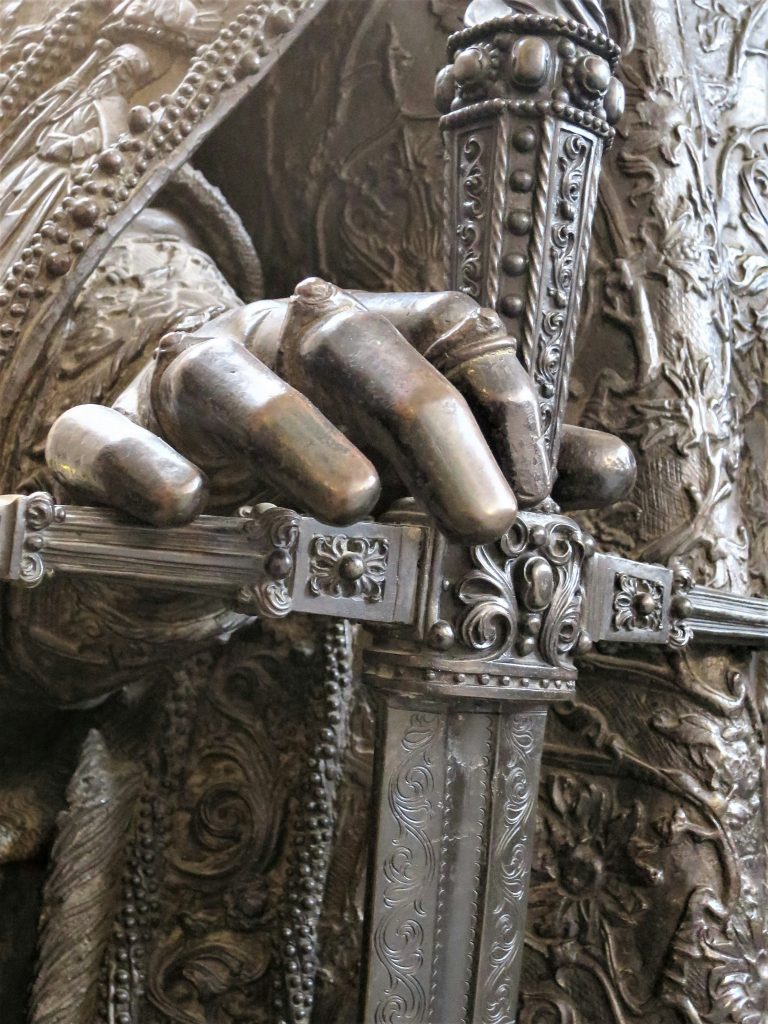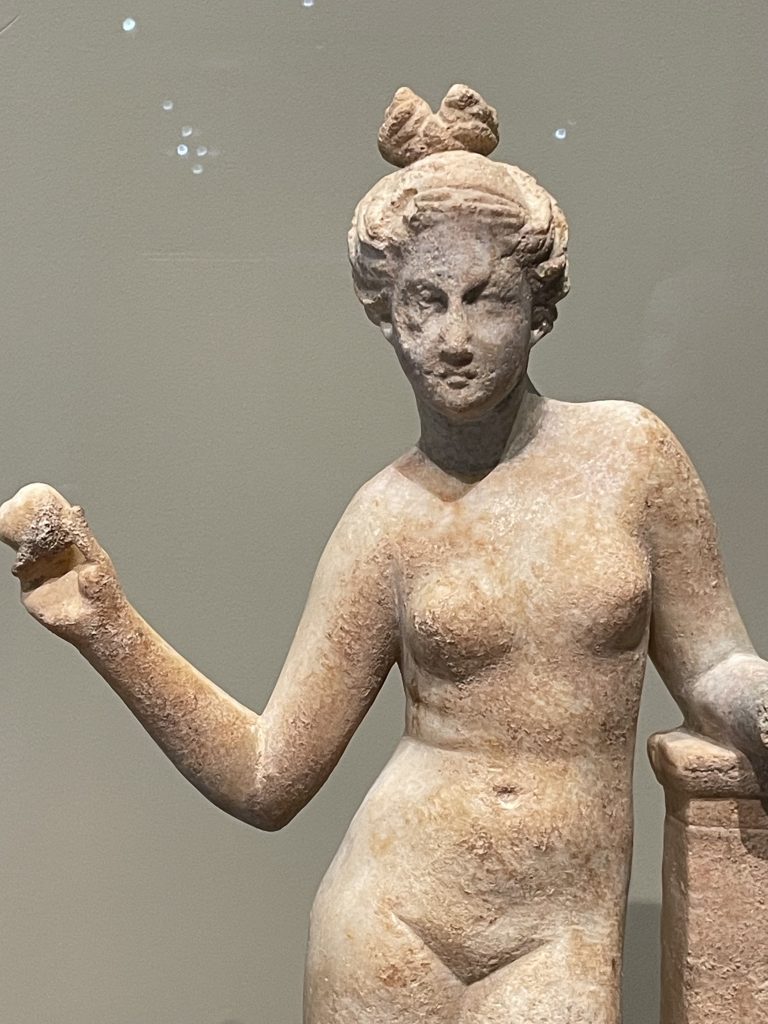In myth and in life, Proteges slaying Mentors is an age-old archetypal pattern, and one that represents an energetic exchange that can be uniquely helpful in a protege’s coming to terms with their spiritual adulthood. It’s unnecessarily rough on the mentors though, and karma’s a bitch for an unkind protege.
In contrast, a sisterly approach yields a transcendent opportunity for both parties, is just as powerful a growth trajectory, and is constructive for the community too.

I first became aware of this kill-the-mentor pattern when I was 5 and my dad fell into a deep and sudden depression. He had been mentoring a young man he thought of as a son: Ken was smart, assertive, a natural leader. Ken learned everything my dad taught fast, and they were fast friends, enjoying lots of social time together, laughing and camaraderie.
The unraveling happened when Ken applied for a job my dad wanted, one my dad appeared in line to get. Ken ‘leaped over’ my dad and was awarded the position. Ken never told my dad he applied for the job, but my dad had told Ken. Both men arguably deserved it. That Ken would valued position over a trusted relationship was a profound shock. It was also the end of their friendship. But this quickening growth pattern happens to teachers and students in patriarchal cultures all the time. It’s a story as old as the hills.
Using the mentor: slightly better, but still patriarchal
In the world of men slaying the mentor, or utilizing the mentor, often includes betrayal, or shark-like maneuvers that can leave well-meaning mentors confused and hurt. Destructive examples are; a protege sleeps with the mentor’s wife, a protege writes a book and doesn’t acknowledge the mentor, or some other unpleasant severance happens in the service of the protege feeling like they’ve come into their own (but it doesn’t guarantee they actually do come into their own. That’s spiritual adulting and always an inside job.)
There are thousands of movies and books and soaps that illustrate this pattern. It’s natural, bold, and it’s boldly destructive too.
Powerful women don’t play zero-sum games

Usually in the patriarchal model, the protege wants to move “up,” and the mentor is treated as irrelevant or is seemingly pushed “down.” This is typically in service to the protege’s ego. A related archetypal pattern is when the mentor falls on the sword for the protege (see recent movie “The Holdovers”) so the protege can rise. The mentors usually do this from a space of love, which can make the betrayal pain go deep, but the pain had a good purpose so is never regretted.
Instead of slaying a teacher, relating to a teacher is something that occurs in powerful women’s circles. Truth telling happens out front, with humor and kindness. And sharing is the paradigm. Teaching isn’t even the right term for it.

In the world of women, slaying one’s mentor is an aberration. Instead one strives for understanding, while standing apart. It’s arrival on a sacred ground. If coming into one’s own happens this way, no destruction is necessary.

Guardians of themselves, stewards of community, and protectors of the next generation
I’ve been mentored by 6 amazing women, and learned so much from many more. All of them have huge hearts, some have grand egos, and all had even grander ideas. And I love them all, even when things got dicey because I was still an emotional child trying to spread my own wings. I remember one mentor said to me with a grand laugh and a wink, “Don’t. Compete. With. The. Boss!” She gave me truth in the form of much-needed relief as I struggled with my identity as a leader.
When she sent that directive my way, she laid bare my greatest fear: that I’d inadvertently hurt her if I became my full self. Of course, this was ridiculous, we worked in different fields, and I didn’t stand a chance of ever ‘catching up’ with her either. She was boss, I was learning….
and we are friends to this day.
Who do you love?
Raised by a mom who always taught me to march to my own drum (so I literally learned to play drums), and to always question authority (including hers), I had the usual problems with authority that everyone else does. “Do they know what they are doing?” “Why don’t they notice my contribution?” “Why are we changing this?” “I gotta get out of here!” And so on. And this is how I also viewed my mentor-bosses. I also knew I had to grow up, but growing up FOR REAL can be hard. I avoided it, until I couldn’t pretend not to know what I knew any more.
I was lucky, each of my mentors was infinitely patient and kind, while I explored making a contribution in their worlds, and simultaneously tried to extricate myself from theirs.
My sister-mentors spoke to me at exactly the level I could understand, with empathy and firmness, and (lucky for me) fun. They never held back praise or a colorful turn of phrase. And, they never held back truth – when I was capable of hearing it. And, they all served something greater than themselves.
Hiding in Plain Sight

Because of my introversion, the expression “the man behind the man,” always felt like a comfortable role for me. I loved being a trusted, hard-working, effective ‘helper,’ but hated being called out as a leader or noticed by the public. Except someone always did see me. Creativity stands out, and because I was so lucky to work on dozens of projects that did good things, my excitement always lit me up.
Know anyone else like this? Yeah, loads of amazing women.
I taught myself my current profession by diligently promoting other entrepreneurs: if I could help promote the goodness someone else made, I could leverage my energy and make a positive difference in the world, and (I thought) hide too. I fancied myself as a secret, quiet force, helping good people do good things. Only problem was that I am by nature loud, proud and unconventional, so people find me anyway, or ask me to teach them, or want me to endlessly manage their stuff. Or they want to slay me.
Going on…
I had various head-butting and sometimes painful goodbyes with some mentors (because I bumbled my way through the archetypes of life trying to act like a man). But later, I learned that they each teacher gave me something invaluable: a natural place in the world alongside incredible women. And they gave it all freely and with love. I do the same and I love those I hang with here.

And, once I truly set out on my own in the wilderness of life, I felt compelled to let each of these women know just how much I respect them, how richly woven their tapestries of life are, and to make amends for my own idiocy, or just acknowledge their contribution where I could. I didn’t kiss any rings, and they don’t want me to. I hope they know when I tell their stories,* it’s with love and admiration, messiness and all.
Some of my mentors have become close friends. And some will always remain 10 steps ahead of me, lighting a path of freedom and authenticity.
What I’ve learned about the mentor-protege relationship is that the protege is not supposed to give anything back to the mentor, they are meant to pay it forward. The “looking up” to the mentor is not the proper relationship either, because looking up always begets a fall. No mentor is perfect or all-giving. Also “looking up” makes some proteges feels jealous and bitter, and that’s where the cruelty begins. Good women don’t look up, they just look over.
We are all in this together.

In the world of men, slaying is the clear cut moment of severance when a protege heads out on their own. But in the world of women, you can simply ARRIVE at a place much like your teacher (but in your own world) without violence or cruelty. And you can grow into your own, enjoying the beautiful threads the others gave you, and weave a tapestry of your own authentic life. That’s how it is supposed to work, anyway, if you choose it.
In a feminist approach, the protege becomes their own person by arriving, and “looking over” to their teachers, just like friends sitting by the river. You nod at each other, maybe even clink cheers with your cups of tea. You watch the flow go by, and you are at peace in your sisterhood, even if you never see each other again.

So, I don’t slay anyone, and I am currently nursing the wound from someone who slayed me. And it hurts. But not because of my ego. It’s because you can only hide from yourself just so long, and its sad when you see someone you love hiding from themselves.
I still try my best to be kind, grateful, and acknowledge my teachers, help those less fortunate, and sit calmly by the river, knowing I did my best by my people too. But my most important people are always my tribe. And they need me now, so I need women who get that and help, not hinder. I also need friends who serve something good and maybe are even a little battle-weary too. These are the best friends for sure.
I believe it’s best to grow like authentic women do, with respect for boundaries, with understanding, and with kindness, and without knives. And when you arrive into YOUR authentic, complete self, look over at your sisters and nod. Welcome.
* So far, my mentors have always loved being seen and acknowledged in piece and this one and this one and even this one.
* Heroes Journey Notes on Joseph Campbell by Scott Jeffery is loosely connected to some concepts here. I see the Heroes Journey as the best version of the patriarchal path.
